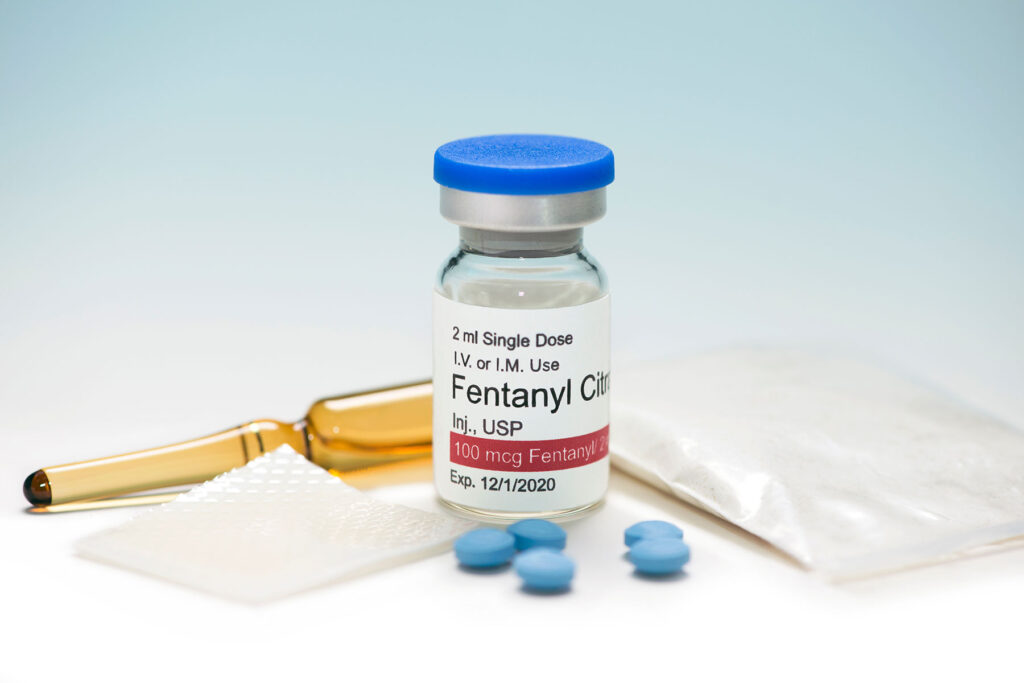Fentanyl is a potent and powerful opioid drug. It is significantly more potent than morphine, the traditional opioid pain reliever, and has been linked to thousands of overdose deaths every year across the United States. With its high potency comes an increased risk potential for abuse and addiction, making it a dangerous drug in the wrong hands.
If you or a loved one needs fentanyl addiction treatment in Washington, consider Northpoint Seattle. Call 888.483.6031 or contact us online for more information today.
What Is Fentanyl?
Fentanyl is a potent synthetic opioid analgesic that was developed in 1960 and has since become one of the most widely prescribed opioids for treating pain. It is 50 to 100 times more powerful than morphine and can be administered through injection, transdermal patch, or orally as a lozenge. Fentanyl’s potent effects make it an attractive target for recreational drug use, and the risk of overdose is high.
Fentanyl is also used in combination with other drugs, such as codeine and hydrocodone, to treat conditions such as chronic pain, postoperative pain, and cancer-related pain. When prescribed fentanyl products are used appropriately, they can be very effective in managing pain. However, it is important to discuss the potential risks associated with taking these medications with a healthcare provider before starting treatment.
Is Fentanyl Addictive?
Fentanyl is more powerful and dangerous than other opioids like heroin and oxycodone, yet it can be just as addictive. People who use fentanyl put themselves at risk of developing a physical dependence on the drug, which can lead to a potentially deadly opioid addiction. Individuals often develop increasing tolerance for the substance over time, meaning they require larger doses to achieve the same effects.
Fentanyl abuse and addiction have become an increasingly pressing public health issue in recent years, and many states have responded by implementing policies aimed at reducing the availability of illicit fentanyl. These include strengthening prescription drug monitoring programs, increasing public awareness about the dangers of fentanyl use, and enhancing access to treatment and recovery services for those affected by fentanyl addiction. As more information becomes available about the risks of fentanyl use, it becomes increasingly important to ensure that individuals who are prescribed these medications have access to the resources they need to use them safely.
The Importance of Seeking Help for Fentanyl Abuse and Addiction
Seeking help for fentanyl abuse and addiction is a critical part of overcoming an opioid use disorder. By seeking professional help, those struggling with opioid misuse can get the treatment they need for sustained recovery. The benefits of seeking help for fentanyl abuse and addiction include:
- Developing healthier coping mechanisms
- Access to evidence-based treatments such as medication-assisted therapy
- Learning strategies for managing cravings and triggers
- Access to peer support groups such as Narcotics Anonymous (NA)
- Improved relationships with family members and friends
- Building self-esteem and gaining confidence in oneself
- Becoming better equipped to lead a fulfilling life in recovery
No matter the severity of fentanyl abuse and addiction, seeking professional help can provide those affected with the support, guidance, and resources they need to begin their journey toward sobriety. With the right treatment plan and a strong support system in place, individuals can overcome opioid use disorder and live a life free from fentanyl.
Find Help for Fentanyl Abuse at Northpoint Seattle
Fentanyl abuse and addiction can be a serious problem, but there are effective treatments available that can help. Treatment options include counseling, behavioral therapies, and medications to reduce cravings. It is important for those struggling with fentanyl abuse to find the right kind of treatment that works for them. Contact Northpoint Seattle at 888.483.6031 or online today to learn how we can help.

